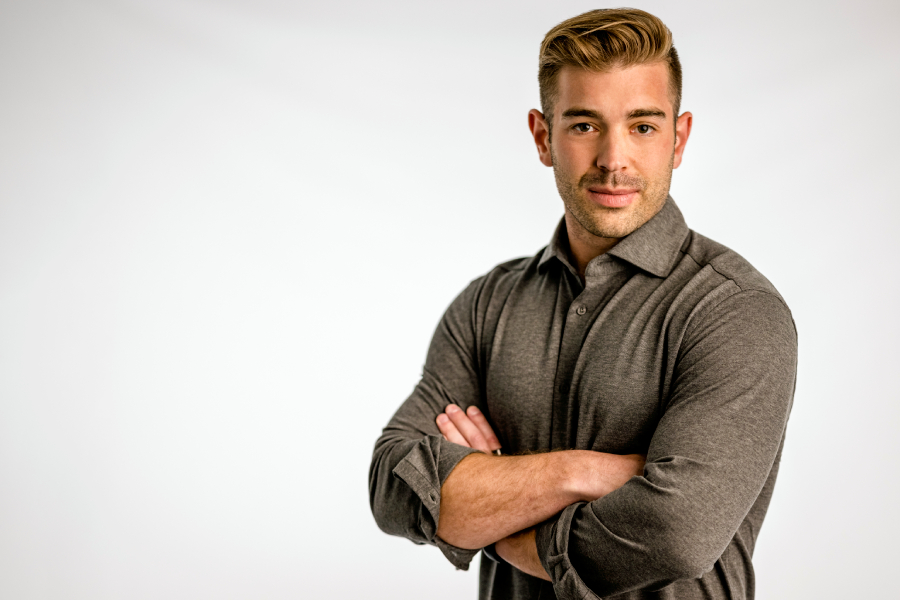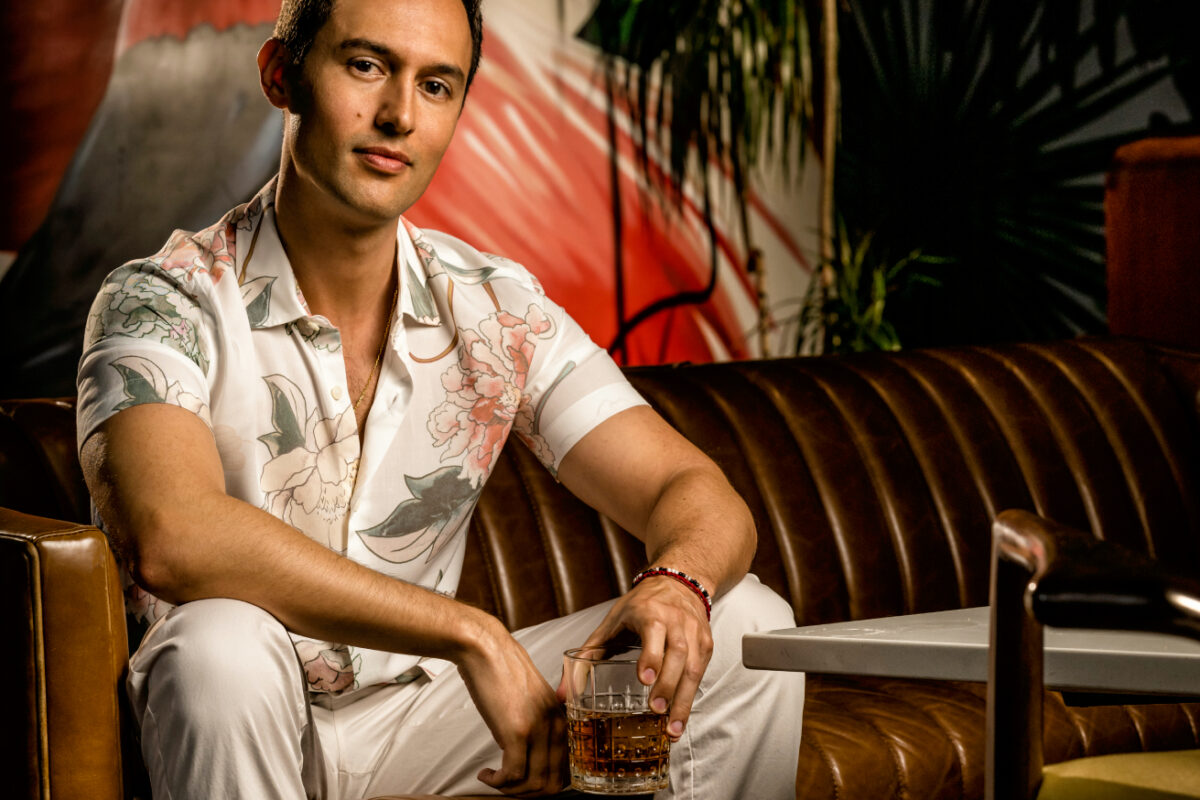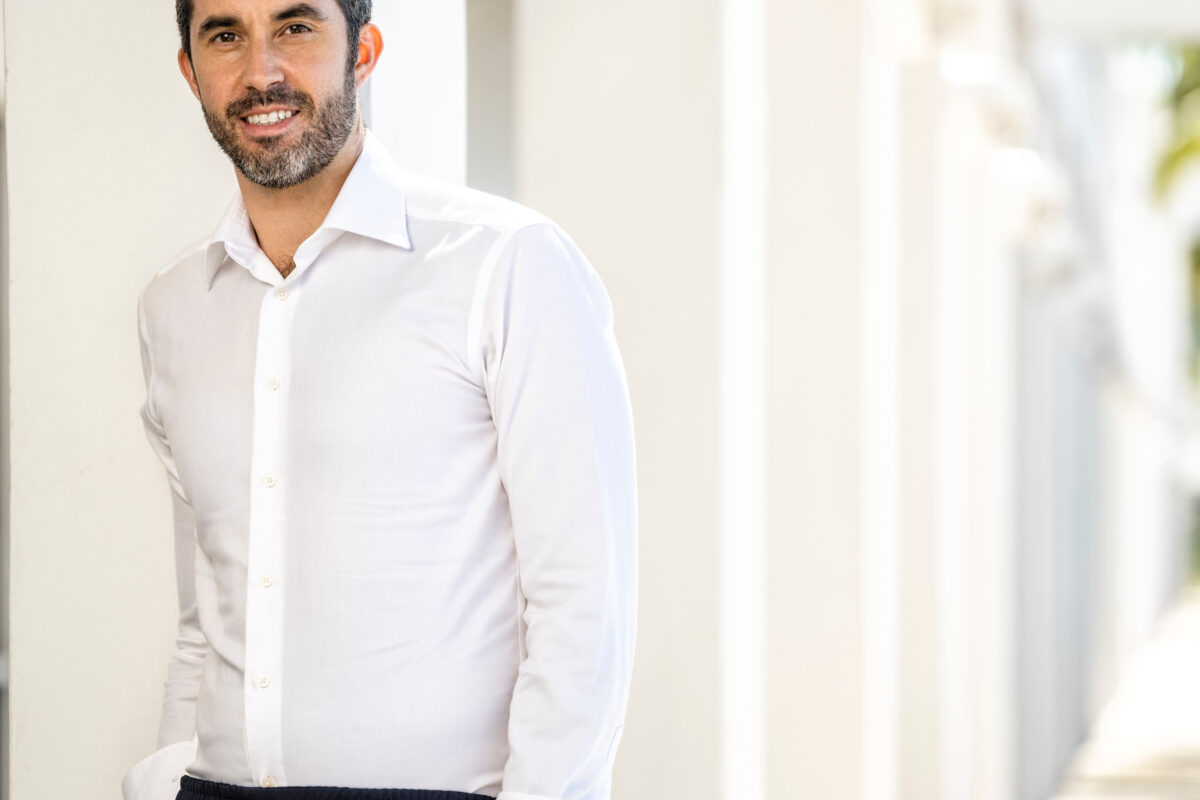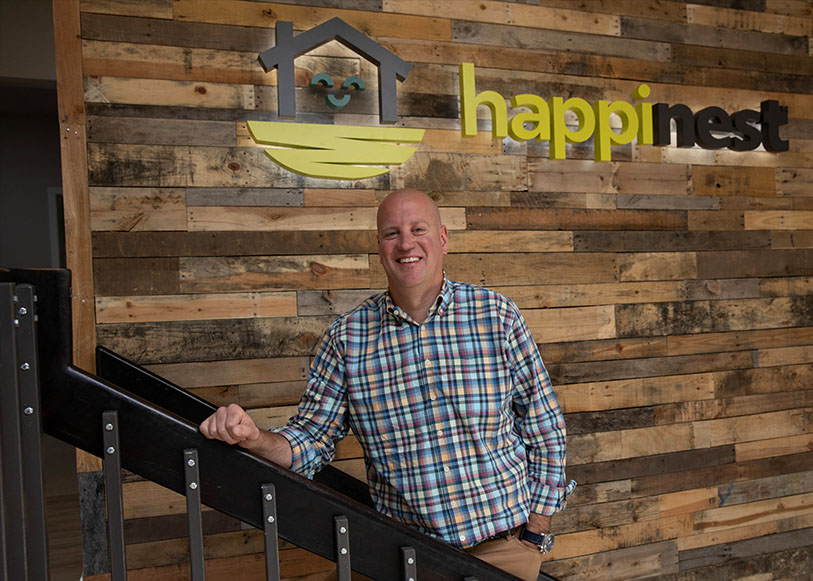Parker Condit is the co-founder and delivery lead of Modo Bio, a unique tech-driven preventative healthcare service that connects people and their wearable fitness tracker data to a telehealth network of doctors, mental health providers, dietitians, and personal trainers. A personal trainer and fitness coach by trade, Parker channels his passion for helping others achieve their health and wellness goals into Modo Bio’s one-of-a-kind approach to closing the gap between fitness data and preventative health management.
We sat with Parker to discuss his diverse life experiences, his entrepreneurial spirit, how he and co-founder Jack Williams brought Modo Bio to life, and his vision for the company’s future and preventative health care.
What was the first business you started?
This is sort of a funny story. I grew up in a small town in rural northwest New Jersey. A lot of farmland near the Delaware Water Gap is one of those places that only have a couple of stoplights. The town is called Blairstown, so I got the idea to do a membership-based discount card called the Blairstown Black Card.
I went to local businesses and negotiated discounts to add them to the card, say 10 or 15 percent, and then sold the membership cards for $100. Anyone who purchased the card could show it at the participating businesses and receive the set discount for a full year. Everyone wins—people save money, local business owners get more traffic, and I get paid for the time and resources I put into creating the card.
The problem wasn’t the business model; it was with the name. Obviously, it’s a play on the American Express Black Card, right? Amex caught wind of it and began sending me cease-and-desist letters, and eventually, they filed suit against me. Nothing ever came of it, though. That was years ago, and I’ve moved several times since, but I still have the email about the lawsuit. I just find it funny.
What is your background, and did it help you get where you are today?
This is going to be one of those ethereal answers, like, of course, everything I’ve done brought me here. That’s true for everyone, isn’t it? But I’ve done a lot of eclectic things that landed me here. After high school, I began studying to be an air traffic controller. Two years in, I realized that wasn’t for me. I couldn’t see myself staring at a screen every day for 25 years and then collecting a pension.
So, I went to New York and worked in marketing for a book publisher. Then I went to Colorado and ended up training to be a wine sommelier. That was fun—I got to go to Las Vegas for training, a whole week just surrounded by and learning about wine. It’s really nice to have had all these experiences and have gotten paid for them. But it seems random when you look at it.
How did the idea for your current business come about?
Probably around 2013 or 2014, I watched a speech on YouTube by a physician who did a P&L (profits and losses) breakdown for the U.S. healthcare system. Most people think it’s boring, but I thought it was fascinating to see how the biggest industry in our country is so wildly inefficient in terms of revenue and human resources. And looking back now, a decade later, it’s not gotten much better.
You know how you get these ideas, and they might interest you for like a year or so, and then it drops off? Healthcare has just been one of those things that kept coming back to me, and I just kept thinking, what if we could create a way to fundamentally change the way people interact with the healthcare system in the U.S.? It’s something I’ve been obsessed with for nearly 10 years now.
I became a personal trainer because it was an opportunity to help people work on their individual health. And then, to get the opportunity to start this business and scale that up? That’s just the chance I’ve wanted. I want people to understand that they can take charge of their own health and that they can have a doctor that really wants to see them be well. Mostly, I want people to realize that not being sick doesn’t equal being healthy. I want them to get holistic, 360° health care and truly be well.
What was your key driving force in becoming an entrepreneur?
Honestly, I don’t really like other people largely dictating what I have to do, especially if I don’t think it’s the right thing. And I don’t necessarily see myself as having to be #1 in a company, but I do like having enough influence within an organization to drive it in the direction that I really think matters. I can’t imagine doing work that doesn’t matter to me. That’s the most important thing—being able to do work that matters and having a voice in where the company is heading.
What kind of culture exists in your organization, and how did you establish it?
I think the culture is laid-back. We’re unique in that it’s not a top-down culture. Everyone wears a lot of different hats and brings different strengths to the table. We have corporate people, medical people, and tech people; all of us have something to offer, and there’s a lot of room for us to talk about our ideas, collaborate, and learn from each other. Plus, we have people with diverse backgrounds as far as geography and culture, so that makes for even more learning opportunities, seeing how different people approach the healthcare strata.
Can you describe/outline your typical day?
First, I walk my dog. Max is a Ridgeback mix I adopted when I was in Colorado. He’s my buddy, and I almost didn’t adopt him—I went to an adoption event, and by the time I got there, the dog I’d intended to get was already gone. But Max laid his head on my bag, and the rest is history. Now he’s the unofficial company mascot, a job he takes very seriously.
Anyway, then I go for a run or to a spin class, then breakfast for Max and me. Then I use Time Boxing to lay out the rest of my day. I choose five or six things I want to get done and block out chunks of time to do them. That way, I’m not bouncing around fifteen minutes here, fifteen minutes there, trying to get things done with divided attention. I fit lunch and meetings in there, too. Then in the evening, walk Max again, dinner, and bed. Sorry, it’s not more exciting!
How do you generate new ideas?
I read a lot. I think a lot of syntheses comes through reading. All the smartest people throughout history either have written books or have had books written about them. So, there are a lot of good ideas out there. And then it’s easier to piggyback and build and put your own twist on them.
I especially love historical biographies. A lot of people find history boring but tying these characters to a particular period is a much more interesting way to view history, at least in my opinion.
How do you define success?
I’d say reaching 100,000 users! What a great feeling it would be, knowing so many people are using our product and getting themselves on track for better-sustained health. But also being able to look back and be proud of the work that we’ve done so far. I was able to be part of all of that without sacrificing any of my morals. That’s definitely “success” in my book.
Do you believe there is a pattern or formula to becoming a successful entrepreneur?
Being able to iterate. By that, I mean finding the things that work and being able to repeat them, no matter the obstacles. If you look at writings by Marcus Aurelius—he talks about how so many impediments end up being the new path you start taking. So, if you look at it from that perspective, it becomes easier to deal with failure. I think most of entrepreneurship is just dealing with continued failures but also continuing to find new ways to persevere to achieve your goals. The path is going to be very meandering and not what you expect it to be. But if you keep generally moving in that direction, you’re probably going to end up where you want to be.
What has been your most satisfying moment in business?
I hope it’s yet to come! I’m proud of this company and its potential. And my potential, too. I think this will still be my answer in five years. There will always be the potential for bigger and better things.
How did you handle adversity and doubt?
Very much through the lens of Stoicism. A lot of very successful people, they’ll say they rely upon Zen Buddhism and Stoicism, and a lot of the maxims are the same. Only worry about what you can control, and a lot of that is your mindset. Because things are going to change and failures are going to happen, it’s just having the mentality to understand that those are not necessarily bad things and being able to control what your reaction to those situations is going to be.
Are there any books you suggest other entrepreneurs add to their “must-read” list?
Ryan Holiday’s “The Obstacle is the Way.” He’s a great modern Stoicism writer, following that same tradition of controlling your mindset and pushing through adversity to achieve your goals. He really presents Stoicism in a way that most people can digest and understand.
What advice do you have for young entrepreneurs?
Try a lot of different things! Getting life experience in various fields is going to make you more flexible and better at dealing with people. The broader the experiences you can have, the more beneficial it is. Also, the more you try, the more you fail. It comes back to that, as well—you’ll learn to handle failure and pick yourself back up to try again, at either the same thing or something new.
What is next? Where do you see yourself and your business in 10 years?
First, we need to expand nationally. Every state has its own rules governing healthcare, and since we have such a unique model, we have to figure out how we can safely and legally operate in each state. Once we can do that, we scale it up and go international. Some countries, of course, have socialized health care, and some have barely any sort of organized health care system. That’s going to be a huge challenge, but I think we’re up for it. Health care is not ubiquitous around the world, so we need to find a way to make our model work and give everyone the chance to take charge of their health and truly be well. www.modobio.com.






